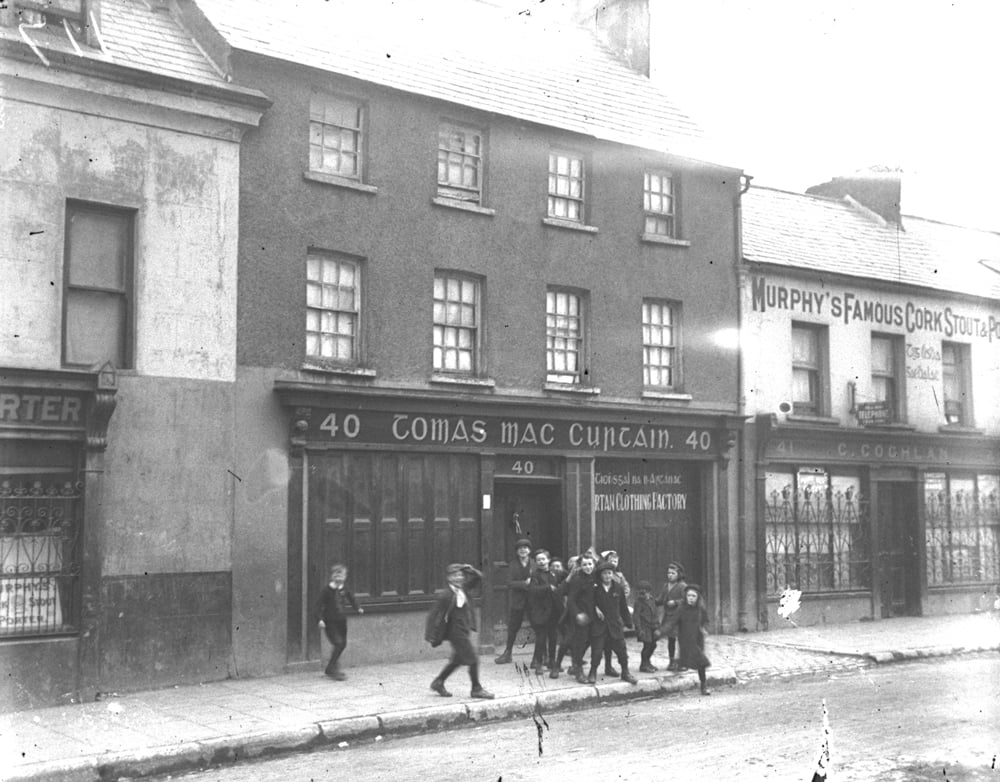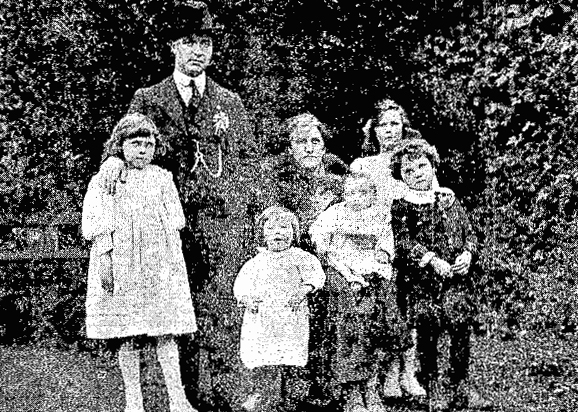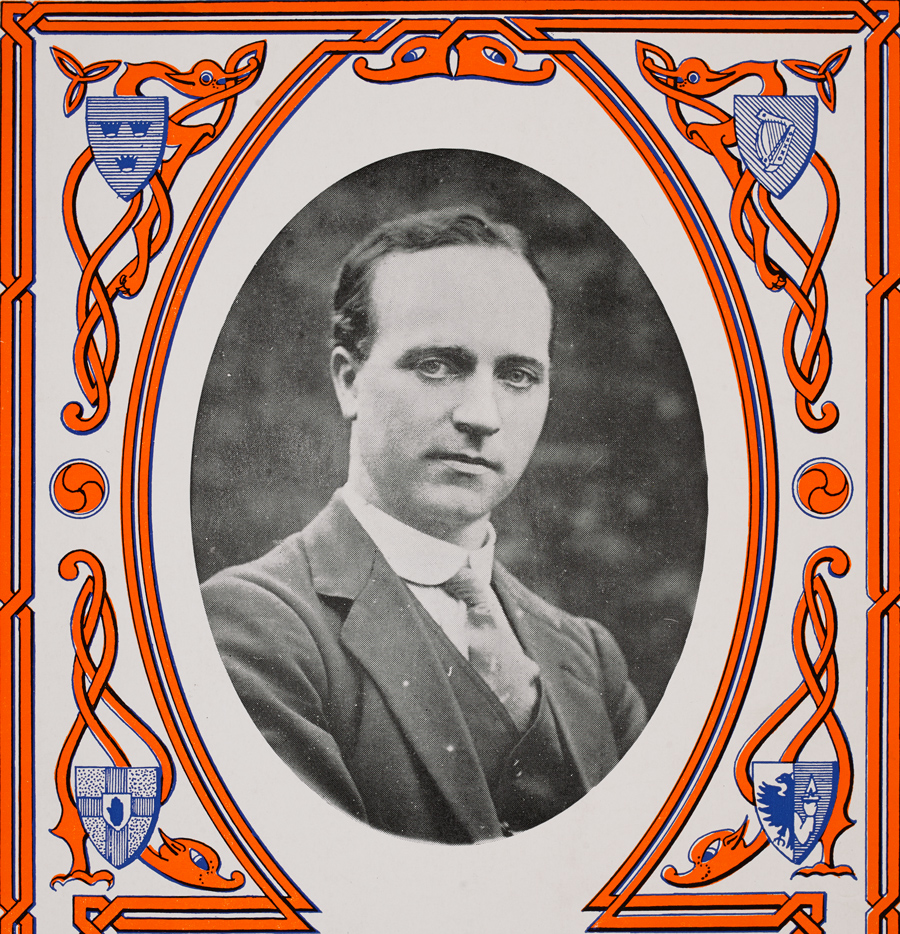Cork Lord Mayor, Tomás Mac Curtain, murdered at home
Cork, 20 March 1920 - The Lord Mayor of Cork, Alderman Tomás Mac Curtain, was shot dead this morning in his home at 40 Thomas Davis Street in the Blackpool area of the city, where he also ran a shop.
The Lord Mayor was in bed in the early hours of the morning when a loud knocking was heard at the door. When his wife, Eilís Mac Curtain (née Walsh), opened it she was brushed aside by two men carrying revolvers who wore caps and had blackened their faces.
More men followed them with rifles, while others entered through the shop door. Two of them took control of the entrance to the house and prevented Mrs Mac Curtain from going upstairs or leaving.

The Mac Curtains' home and shop on Thomas Davis Street in Blackpool (Image: RTÉ Archives)
The raiders, who were described as being tall and young, knocked on the bedroom door. When Mac Curtain protested that he was getting dressed, they demanded that he ‘come out here’. When he eventually appeared, wearing his pants and nightshirt he was shot twice by revolver. He fell backwards on the landing with blood flowing copiously from his chest.
It is understood that four days prior to his killing, the Lord Mayor had received a threatening letter which he had not treated seriously. It read: ‘Thos. McCurtain [sic], prepare for death. You are doomed.’
Military search
Within an hour of his death, the military carried out a search of
Mr Mac Curtain’s home. Nothing of note was found.
The Chief Secretary of Ireland, Ian Macpherson, explained this action on the basis that it was the responsibility of those with a duty to uphold law and order to enter a place where a murder had been committed, although he didn’t explain why it was soldiers and not the police who did the searching.
To shouts in the House of Commons of ‘order’, ‘shame’ and ‘withdraw’, the Irish nationalist MP for Liverpool, T.P. O’Connor, asked whether the insistence of the soldiers to search the whole premises gave rise to the ‘suspicion that this was meant to destroy the evidence of the crime?’
Another MP, Jeremiah MacVeagh, who represents the constituency of South Down, made a similarly pointed contribution when implicating police involvement in the murder. ‘If you had searched the police barracks you would have got the evidence’, he told Mr Macpherson
Mrs Mac Curtain and others members of the family protested against the behaviour of the soldiers but to no avail.
Reaction
The Freeman’s Journal, a newspaper which is often
critical of Sinn Féin, has stated that the murder in Cork
is a ‘portent of the gravest evil… Mr Mac Curtain was
evidently murdered because he was a representative Sinn
Féiner of the City of Cork’ and he was the victim of
a ‘conspiracy of vengeance, formed by the enemies of the
Sinn Féin movement and supporters of British rule in
Ireland.’
The Roman Catholic Bishop of Cork, Dr Daniel Cohalan, has denounced the Mac Curtain attack as a murder and a crime, but has asked that no thought be given to ‘retaliation or reprisals’ which, apart from being unlawful, might be directed in error against individuals or classes of men unconnected with the Lord Mayor’s murder.
Father Dominic O’Connor, chaplain to the Lord Mayor, has likewise called for calm, asking citizens to resist the provocation to retaliate.
Tomás Mac Curtain, a fluent Irish speaker, was a commandant in the Irish Volunteers since 1914 and he was interned in the aftermath of the rebellion of Easter week in 1916.
He was elected Lord Mayor of Cork on 31 January 1920, the first republican to hold the office.

Tomás Mac Curtain and his family (Image: Cork Examiner, 31 January 1920)
[Editor's note: This is an article from Century Ireland, a fortnightly online newspaper, written from the perspective of a journalist 100 years ago, based on news reports of the time.]





















